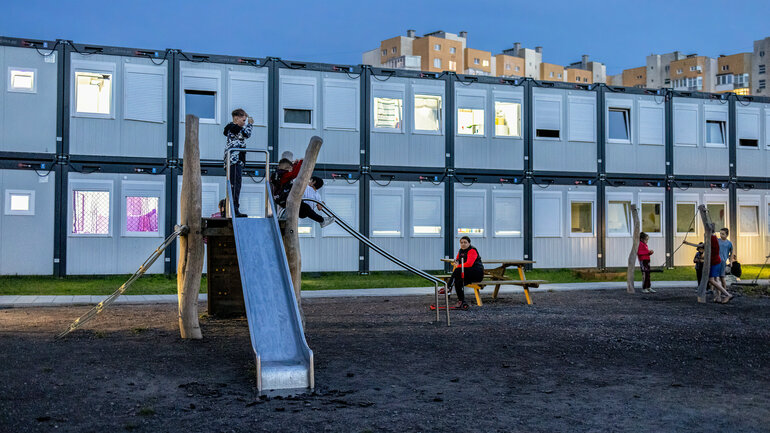Displacement from and in Ukraine: Decisions, Trajectories, Attitudes, Perspectives
Displacement from and in Ukraine: Decisions, Trajectories, Attitudes, Perspectives

Project description
In this qualitative long-term study, we focus on refugees from, and internally displaced persons in, Ukraine. The aim is to investigate, over time and in depth, not only the experiences of fleeing and arriving in new locations, but also issues of identity and security, as well as individual networks and visions of the future. The people behind the broad term “refugees” are thus made visible.
The research is conducted in the capital cities and medium-sized cities in Germany, Poland and the Republic of Moldova. Its purpose is to gain a better understanding of the role of national and local policies, practices and cultural meanings which inform people’s experiences and strategies in relation to displacement, arrival, integration and return and also influence circular and other migration movements. We are conducting a similar study among internally displaced persons in Lviv in Western Ukraine.
We are particularly interested in how individuals negotiate their everyday lives in response to state regulations, institutional practices and various local and transnational contexts and how much agency they are able to exercise. Personal networks in Ukraine and at the destination play a key role here. We focus on everyday needs, but also on political and social attitudes, identities and the role and perceptions of the Ukrainian state and the host country/location. We are also interested in attitudes towards war and peace and the development of options for the future, from arrival in the host country until a possible return or a more long-term future outside of ukraine.
The project received start-up funding from the DFG-sponsored Contestations of the Liberal Script (SCRIPTS) Cluster of Excellence and is now funded by ZOiS. At ZOiS, it straddles the research clusters Conflict Dynamics and Border Regions and Migration and Diversity.
Key questions
- What kind of experiences do refugees gain from the time they decide to leave their homes until they arrive in the new location/country?
- How do refugees negotiate their position in terms of access to schooling, housing and the labour market?
- How do refugees’ personal networks develop (in Ukraine and at their destination)? What is the role of Ukrainian migrants, diaspora organisations and other civil society actors in this context?
- How do war and displacement inform identities and influence attitudes towards the Ukrainian state?
- What are the refugees’ visions for peace, recovery and the future?
Methodology
- Qualitative repeat survey among Ukrainian refugees in Germany, Poland and the Republic of Moldova: around 20 in-depth interviews per country, conducted at intervals of 2-3 months from April 2023 in the capital cities and 1-2 other cities (Germany: Berlin, Magdeburg, Kassel; Poland: Warsaw, Rzeszów; Moldova: Chișinău, Tiraspol)
- Qualitative repeat survey among internally displaced persons in Lviv, Ukraine (around 20 in-depth interviews)
- Mental mapping is used as a participatory method during the in-depth interviews to capture data about escape routes, arrival spaces, identities, political attitudes and networks.
The project evolved from the FORUM network established by ZOiS and the German Centre for Integration and Migration Research (DeZIM). It is based on a questionnaire developed within the network and has been expanded to include further topics.
![[Translate to Englisch:]](/fileadmin/media/_processed_/3/2/csm_Loewis__Annette_Riedl__d15ffb8229.jpg
)
![[Translate to Englisch:]](/fileadmin/media/_processed_/4/3/csm_Sasse_2022__Riedl__27effde830.jpg
)